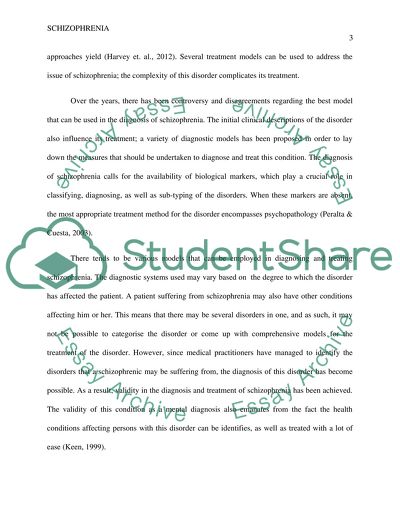Cite this document
(“Critically evaluate the validity of schizophrenia as a mental health Essay”, n.d.)
Critically evaluate the validity of schizophrenia as a mental health Essay. Retrieved from https://studentshare.org/psychology/1620530-critically-evaluate-the-validity-of-schizophrenia-as-a-mental-health-diagnosis
Critically evaluate the validity of schizophrenia as a mental health Essay. Retrieved from https://studentshare.org/psychology/1620530-critically-evaluate-the-validity-of-schizophrenia-as-a-mental-health-diagnosis
(Critically Evaluate the Validity of Schizophrenia As a Mental Health Essay)
Critically Evaluate the Validity of Schizophrenia As a Mental Health Essay. https://studentshare.org/psychology/1620530-critically-evaluate-the-validity-of-schizophrenia-as-a-mental-health-diagnosis.
Critically Evaluate the Validity of Schizophrenia As a Mental Health Essay. https://studentshare.org/psychology/1620530-critically-evaluate-the-validity-of-schizophrenia-as-a-mental-health-diagnosis.
“Critically Evaluate the Validity of Schizophrenia As a Mental Health Essay”, n.d. https://studentshare.org/psychology/1620530-critically-evaluate-the-validity-of-schizophrenia-as-a-mental-health-diagnosis.


